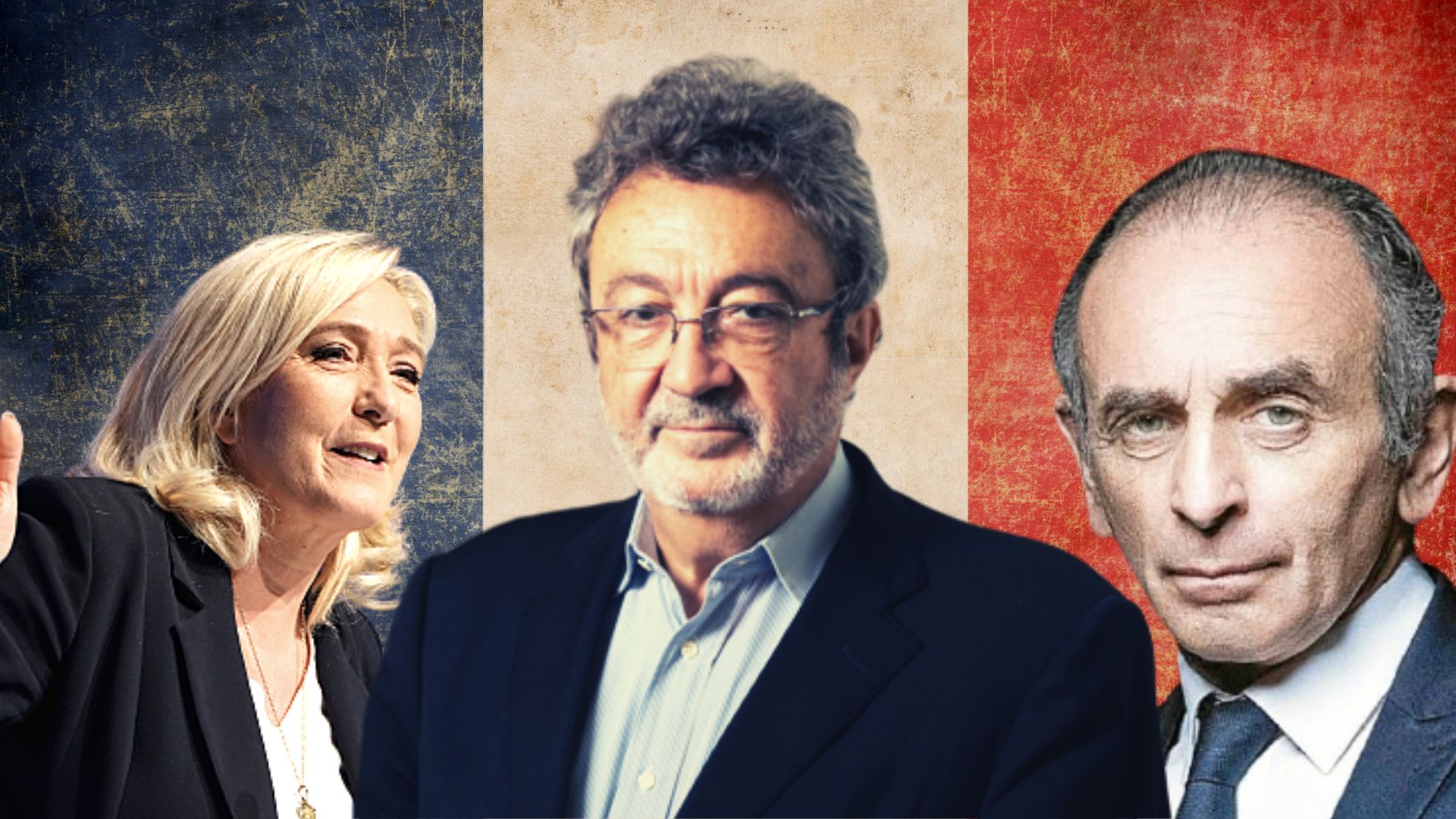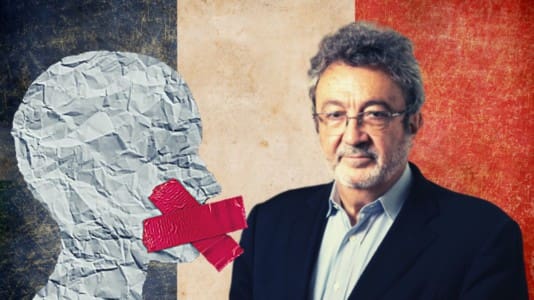You are the secretary of the Iliad Institute for the Long European Memory and it was you who spoke on behalf of this institute after the French government’s preemptive ban on its symposium, which had been scheduled for May 21. You spoke of a return to preventive censorship in France, as the Iliade Institute has never been convicted of any illicit activity or speech, but has simply been labeled “far right” by Emmanuel Macron’s governing team. Looking back, can you tell us more about this ban and what it means for freedom of expression and freedom of association in France?
I think we need to go back to the sequence of events that led to the ban. Our event was scheduled for Sunday, May 21, at 3 p.m. On Friday at 5 p.m. on the Médiapart website, which is a far-left general information site, an article by a French pseudo-historian, Nicolas Lebourg, appeared about Dominique Venner, the historian to whom we wanted to pay tribute with this symposium, on the anniversary of his suicide at Notre Dame Cathedral. This article was based on confidential police files.
Two hours later, at 7 p.m., the Paris police prefecture prohibited our tribute, even though it was a private event held in a private venue. Attendance was to be by invitation only. In its ban, the police paraphrased the Médiapart article.
[pp id=78606]
Strangely enough, we, as organizers, did not get informed of the ban until 3.30 p.m. the following day, less than 24 hours before the planned event.
In France, there is a fast-track judicial procedure that allows one to question this type of decision by authorities that could infringe on civic freedoms, and it can be filed with the administrative court on their website. So, we filed two such requests at 6 p.m. and 7 p.m. on Saturday, but the administrative court replied on Monday saying they were received too late.
With this ban, for which we were effectively deprived of any possibility to have it overturned, the police prefect was of course just carrying out the orders of Interior Minister Gérald Darmanin. And the reason for the ban was that comments could be made at our symposium against certain categories of the population based on race, religion, origin, sexuality, etc.
This means that in France, we have now entered a world of preventive justice, where the authorities speculate in advance about what people might think and say. This is a complete reversal of the rule of law and in particular of the 1881 press law, which protected not only freedom of the press but also freedom of expression.
In France today, they can decide that you might say something bad because your thinking is probably not very good, it is not in line with the standards of the Declaration of the Rights of Man and of the Citizen — that’s exactly what the police prefecture told us in its ban — and so they choose to ban you.
It is unique, and it is very worrying for the future of public freedoms, but also for private freedoms because it is no longer just freedom of expression that is at stake, but freedom of opinion. Since then, we have lodged three appeals through our lawyer: one against the administrative court, which should have ruled earlier on our petition to overturn the ban; a second before the Council of State, France’s top administrative court, to repeal the Darmanin circular, which is the legal basis for the ban; and a third against the police prefect for political discrimination.
At the same time, France’s Council of State is quite subservient to the executive since its judges are rewarded with positions in government ministries for their work as top administrative judges.
I am afraid that is true, but I think we should still make our position clear to the Council of State. We are fighting this battle not just for ourselves, but for everyone. Tomorrow, we could imagine an opposition political party such as Le Pen’s National Rally, Zemmour’s Reconquest, or Mélenchon’s France Unbowed holding a meeting, and that meeting being banned on the grounds that comments could be made there that might be contrary to the Declaration of the Rights of Man and of the Citizen or contrary to the principles of the French Republic.
We can even imagine, I suppose, a dissolution like that of Generation Identity, which, after all, had committed no illegal acts.
Indeed, we can now imagine anything. The logic behind this ban is not legal at all, but political. President Macron no longer has a clear majority in the National Assembly. He doesn’t really know what to do anymore. We can see that insecurity and assaults are on the rise. There was this case in Annecy recently, where toddlers were stabbed by a Syrian refugee, but there are rapes, attacks, burglaries, and so on every day. President Macron spoke of decivilization, which is interesting. We are being absolutely flooded with immigrants.
And since Gérald Darmanin’s record as interior minister is hopelessly bad, he is using his communication skills to hit the right twice and the left once, as he did with the pseudo-dissolution of the leftist, ecologist movement, “Soulèvements de la Terre.” Basically, it is the extreme center that does nothing for security and nothing for immigration, but seeks to show the French that it is fighting against the bad guys of the extreme left and extreme right to send the message that good people need not worry, as they are protected. For that purpose, the authorities label different people as far right or far left as they wish.
The truth is that such behavior reflects a certain anxiety on their part. If this anxiety keeps growing, the repression could become even more severe. I believe that the authorities are becoming more rigid due to a growing feeling of weakness and a great concern: Will Emmanuel Macron be able to see his mandate through to the end?
After your symposium was banned in France, you went to take part in another Iliad meeting, albeit in Italy, I believe.
Yes, but it wasn’t a symposium, just a presentation of the Iliad Institute organized in a bookshop.
Could it be a solution for the future to organize Iliad Institute events in European countries that are freer than France?
It would really be a last resort, but why not? Freedom of expression seems to me to be much greater in Spain and Italy, two countries I know well. I am sure that applies to Portugal too, but I am not so sure about Germany. We could hold a conference abroad, which we could film and post on the Internet. But that would mean the situation is really dramatic if we are forced to go abroad to express ourselves freely. It is not out of the question, but it is really a last resort. We could also do it in Poland, Hungary, or the Czech Republic, for example, or elsewhere in Central Europe, where there is more freedom. But it would still be a defeat.
This is part one of a two-part interview with Claude Chollet, who in addition to his role as the managing editor of the Observatoire du Journalisme, also serves as the secretary of the Iliade Institute, a conservative think-tank now censored by the French government.
Read the other half here for a deep dive into how the French system seeks to control dissent and free speech in the country, including Chollet’s experience with being forced to host his website on United States servers due to repression in his home country.






